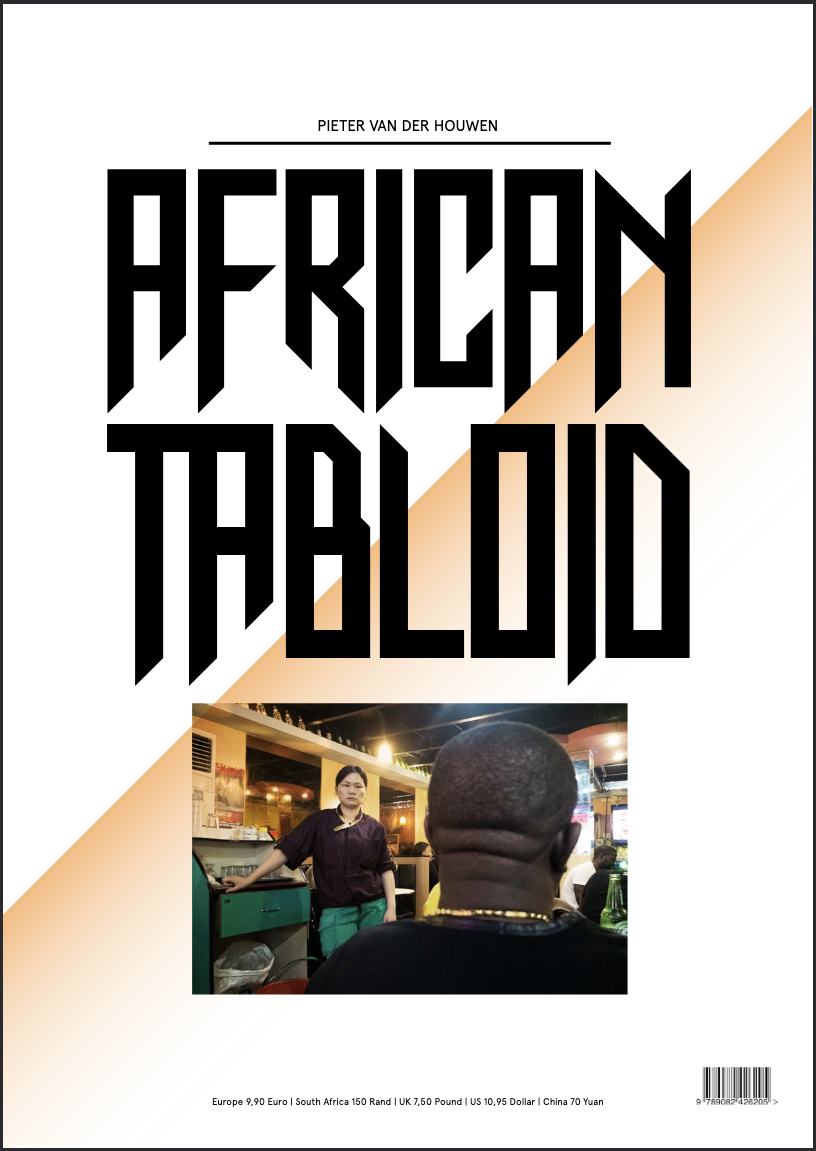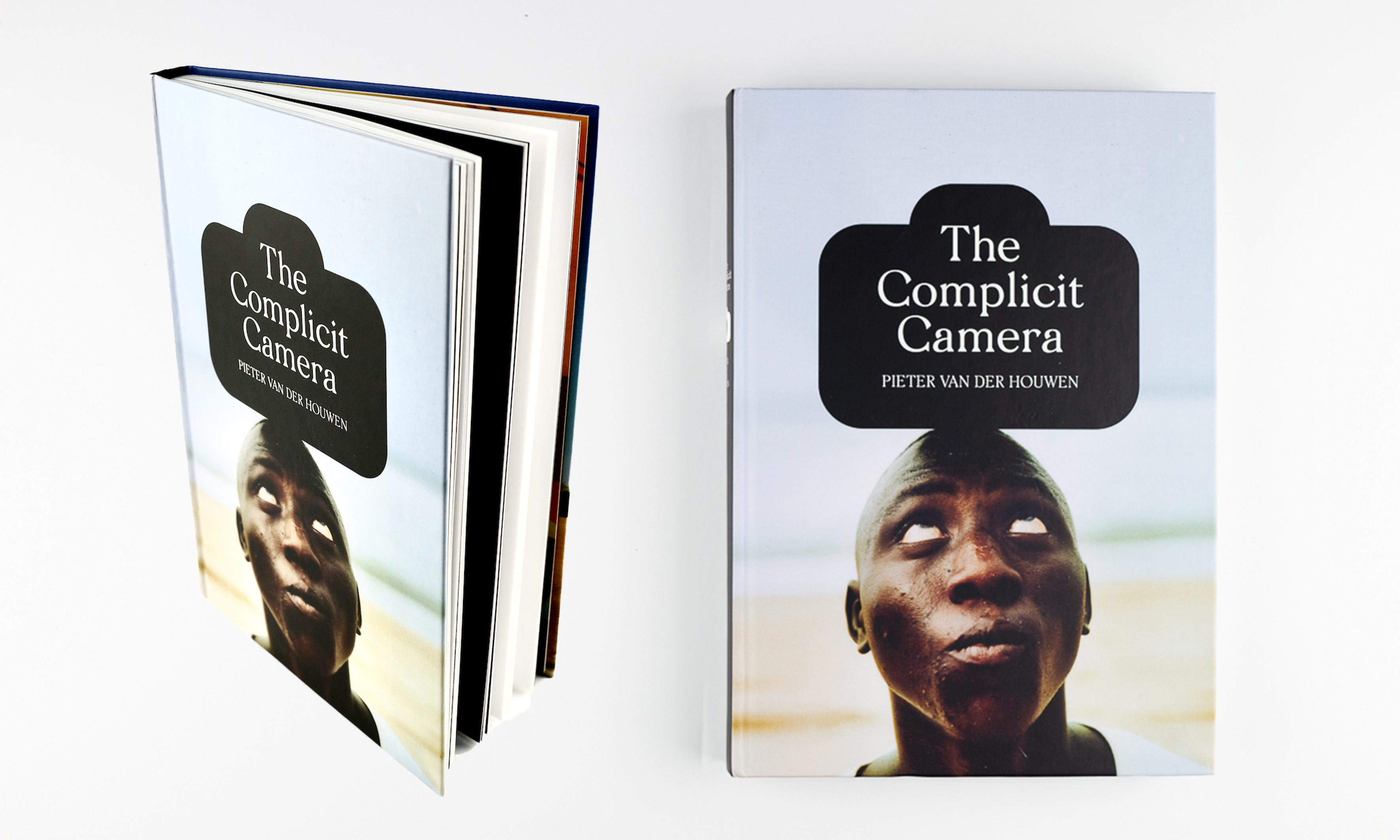Press release/persbericht | Book launch | Recommendations | Reviews | Bio author | The African Tabloid | Events
Press release (English & Dutch)
Recently released: The Complicit Camera
As soon as a photograph enters the public domain, the original intentions of its maker seem to disappear from sight. This creates an image economy, more than an image culture. And that culture is still dominated by white, Western perceptions.
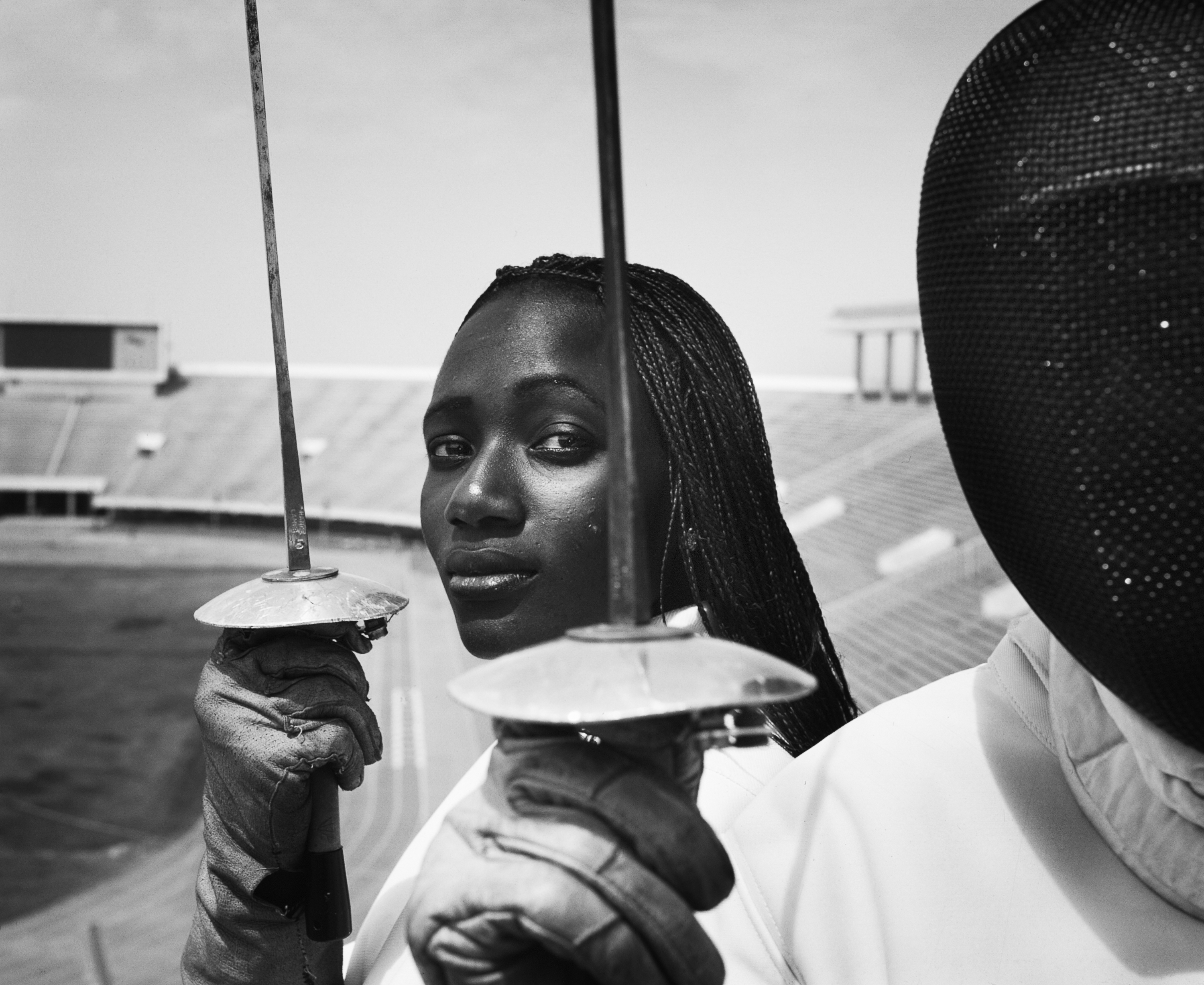
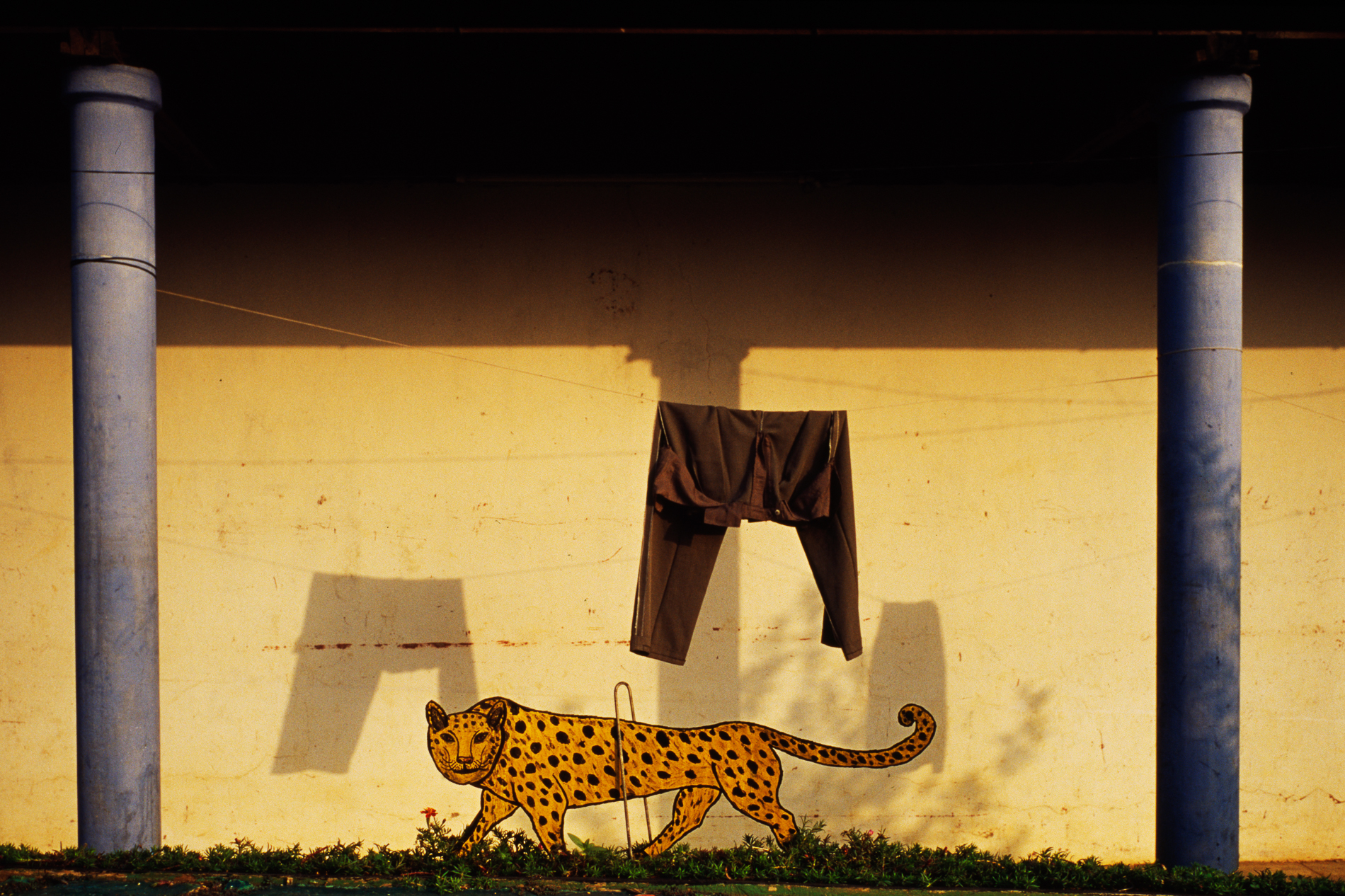
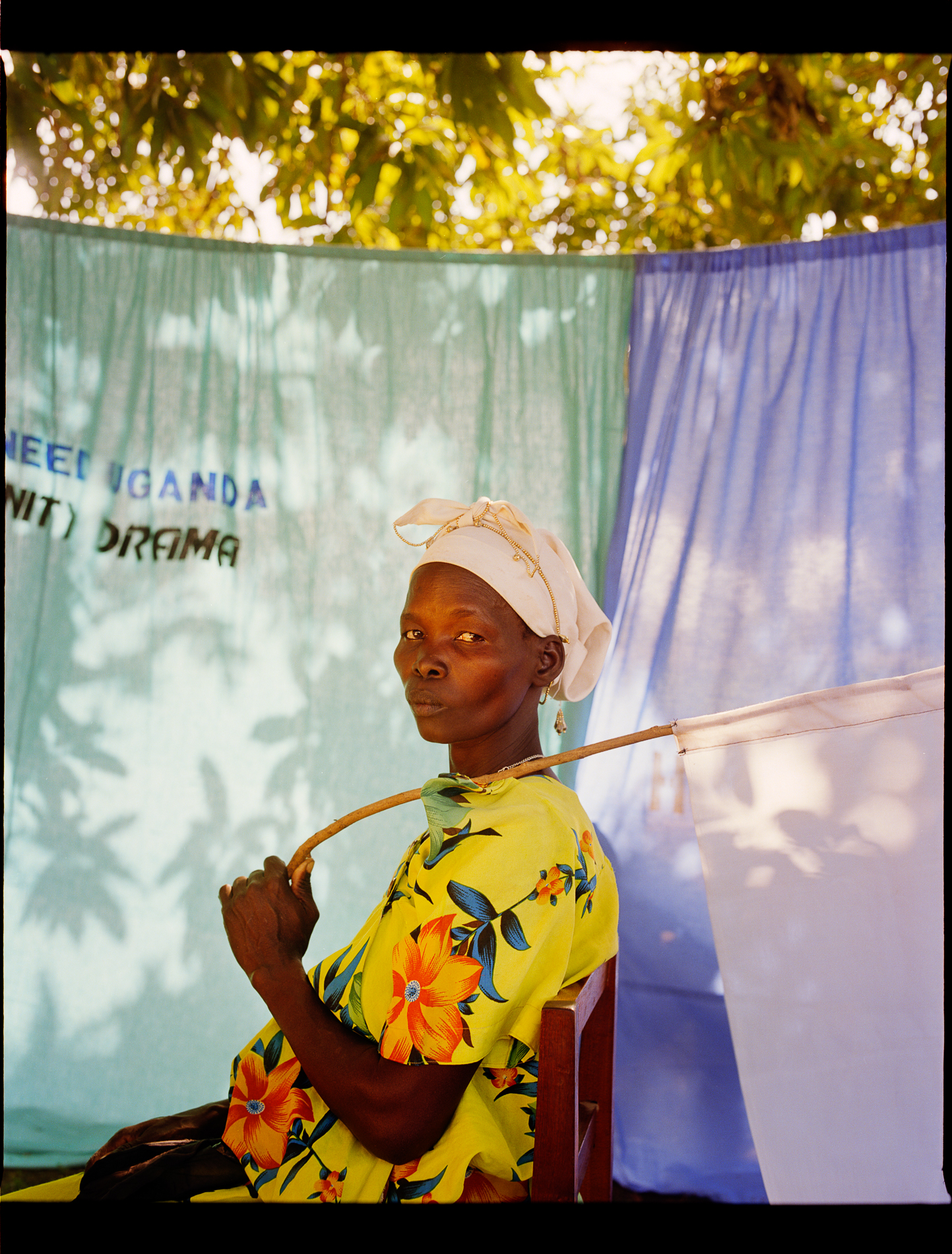
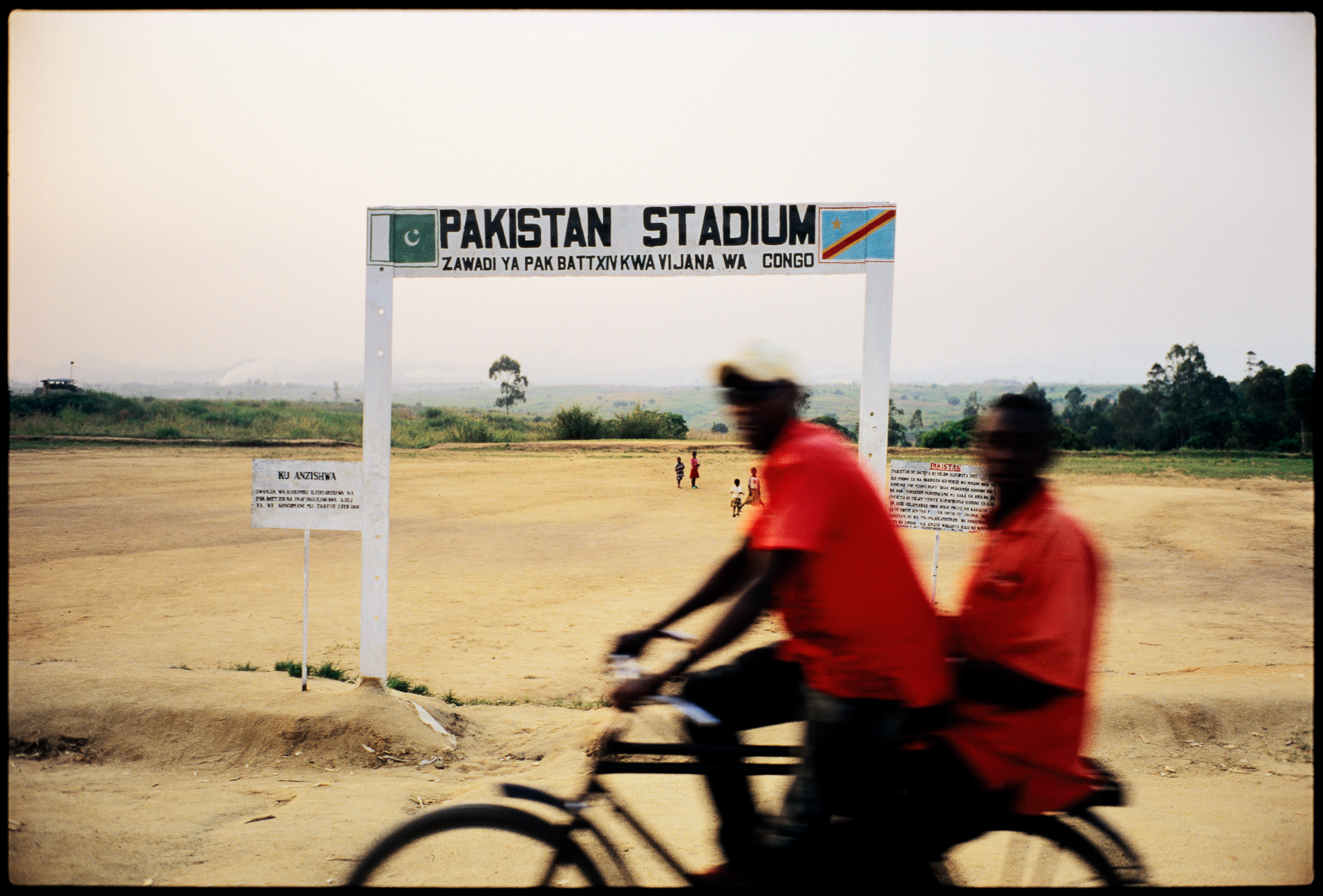
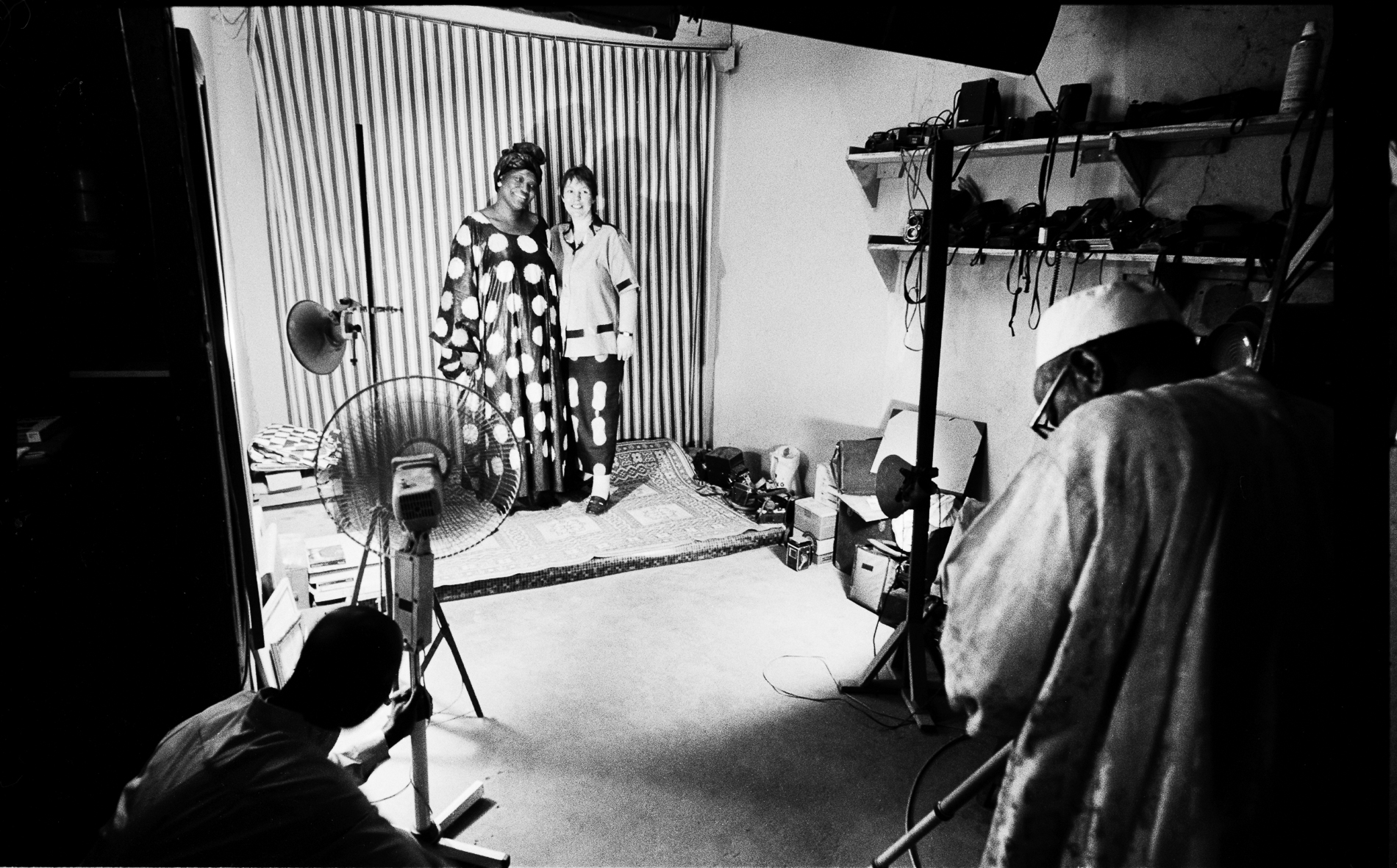
“An image should be a collaboration between the photographer and the subject so as to avoid being complicit in the construction of otherness.”
From Vamba Sherif’s essay in The Complicit Camera
Preface of the book
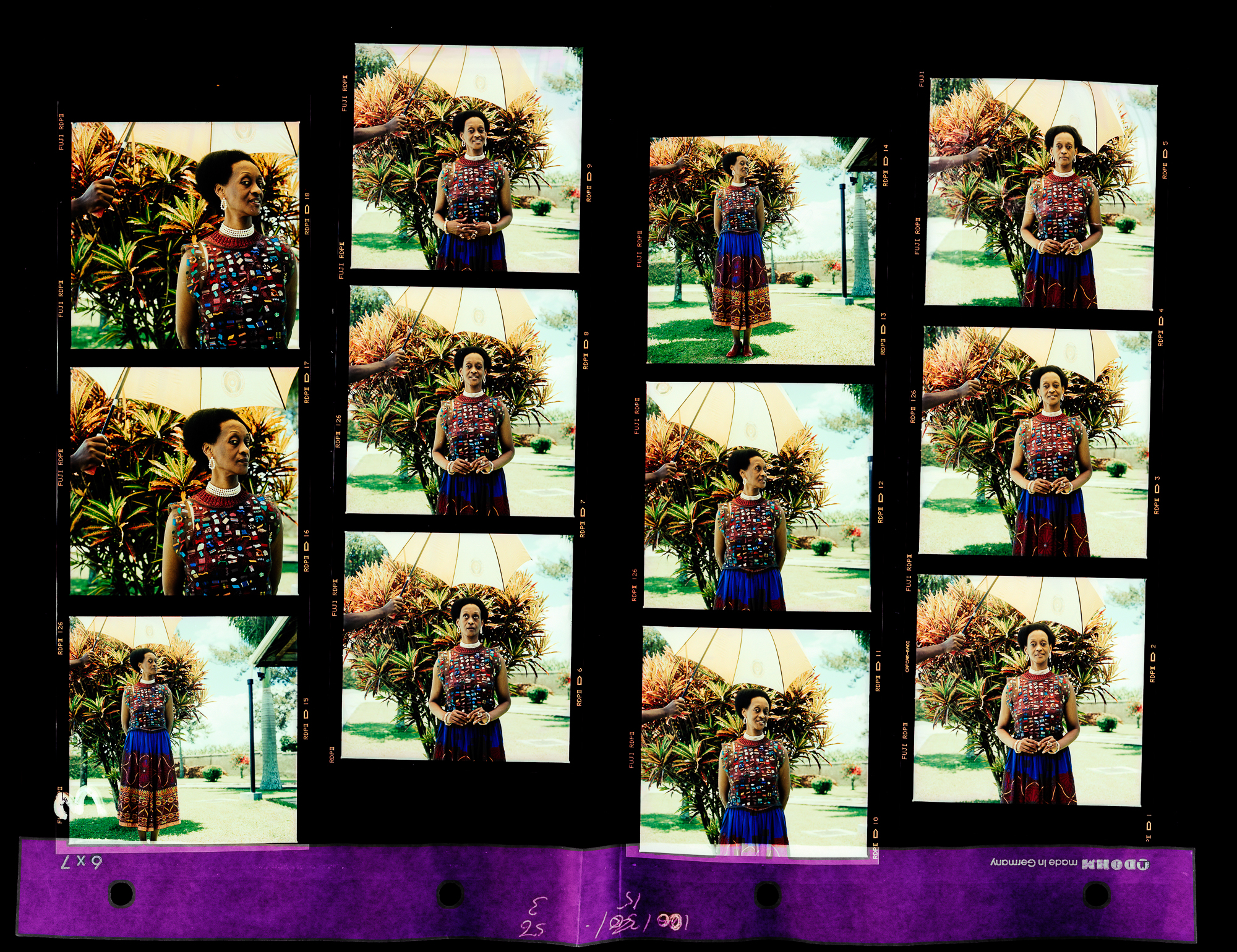
Photographer Pieter van der Houwen investigates how his images contributed to a (mis)understanding of Africa. This is his preface to the book.
“Een belangrijke en urgente publicatie. Pieter van der Houwen onderzocht met een kritische blik zijn betrokkenheid bij Afrika. Wat kunnen mensen - en andere witte aan de weg timmeraars zoals ik - daar veel van leren! Door jezelf lastige vragen te stellen, je kwetsbaar op te stellen. Herken de vertekening van een in ongelijkheid gedrenkte wereld. Kijk, zoals Pieter van der Houwen in dit zo relevante boek, kritisch naar je eigen praktijk. Je bent nooit te oud of te jong om jezelf te verbeteren.”
Adriaan van Dis
Events
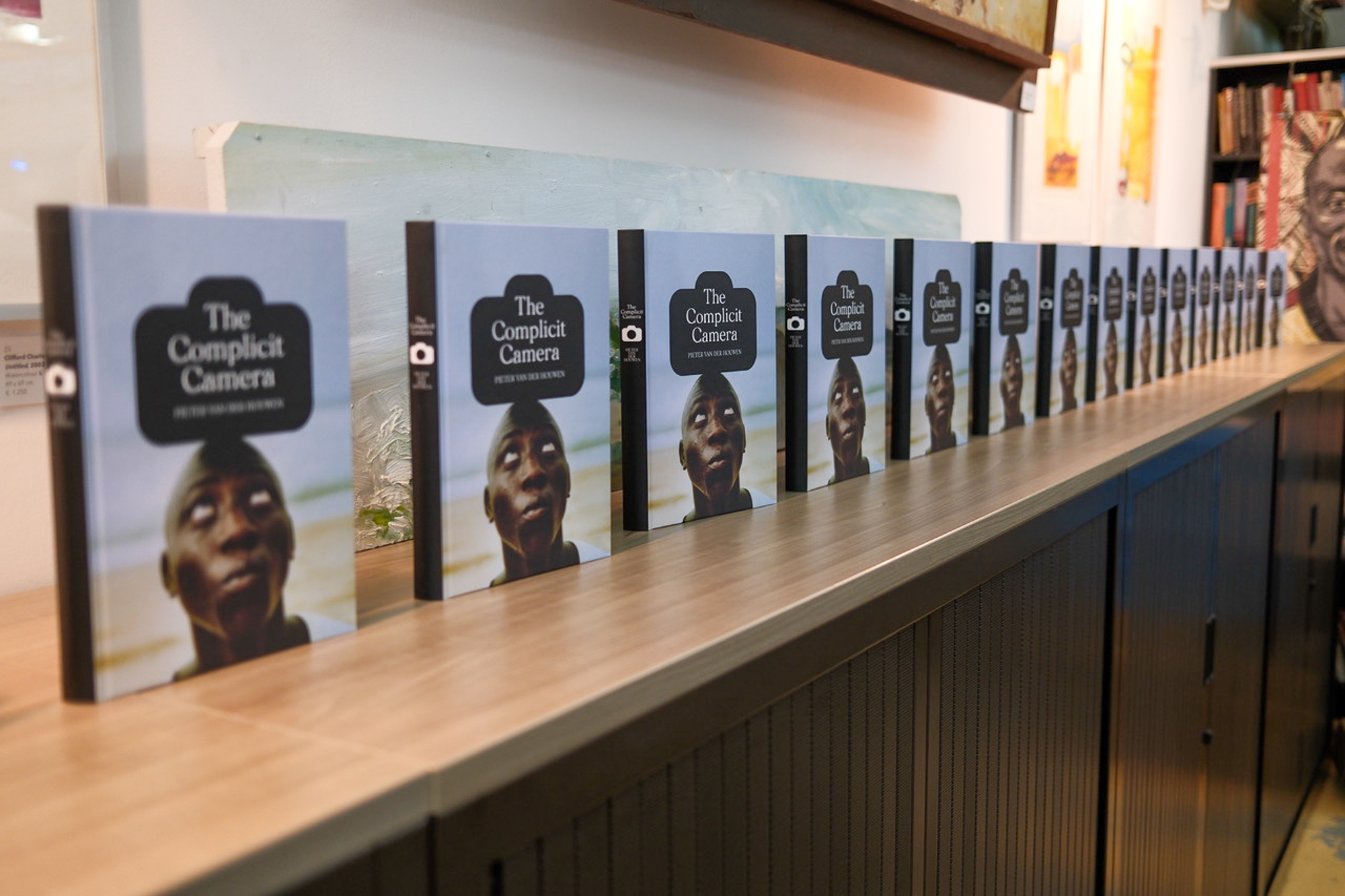
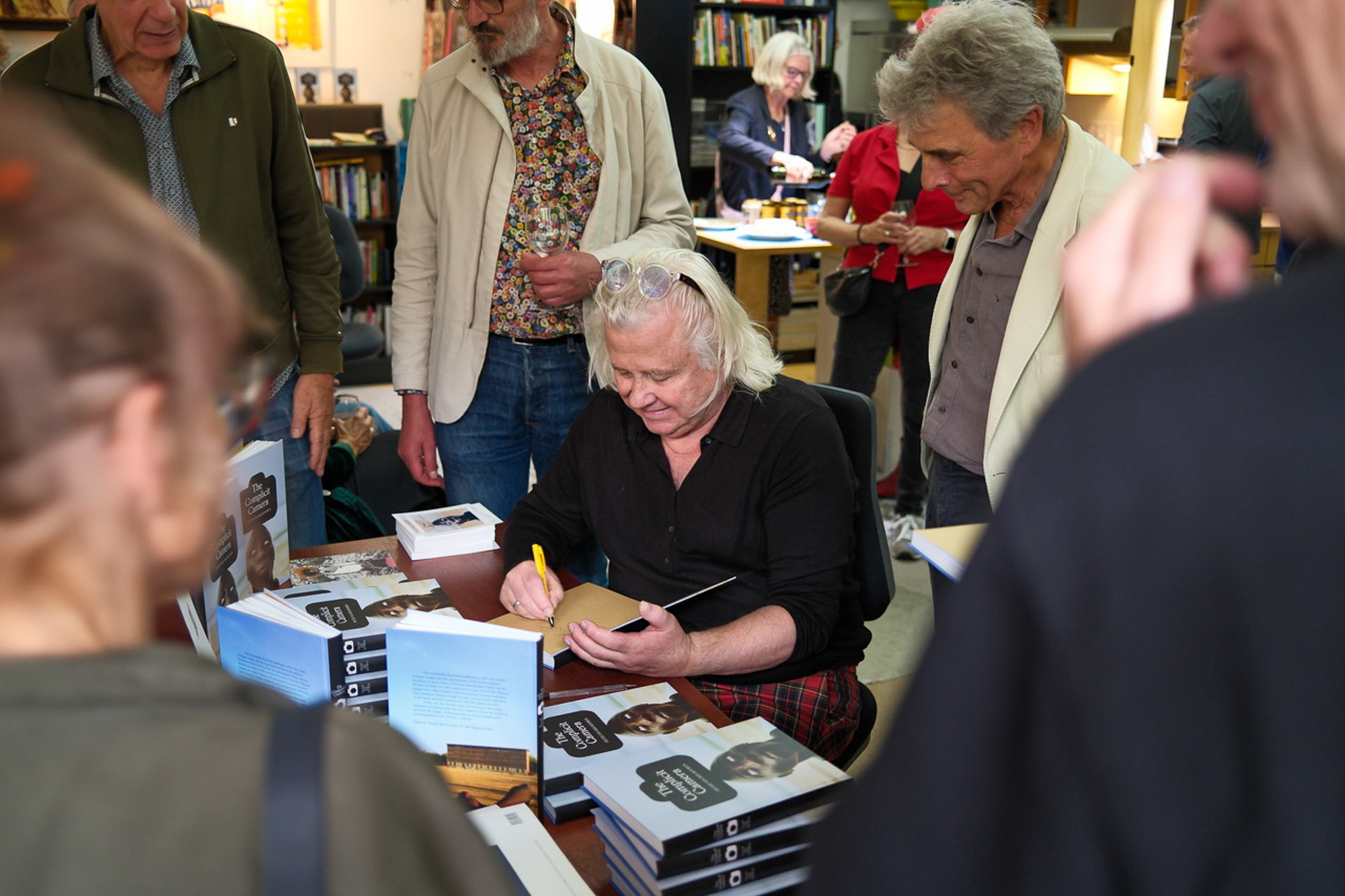
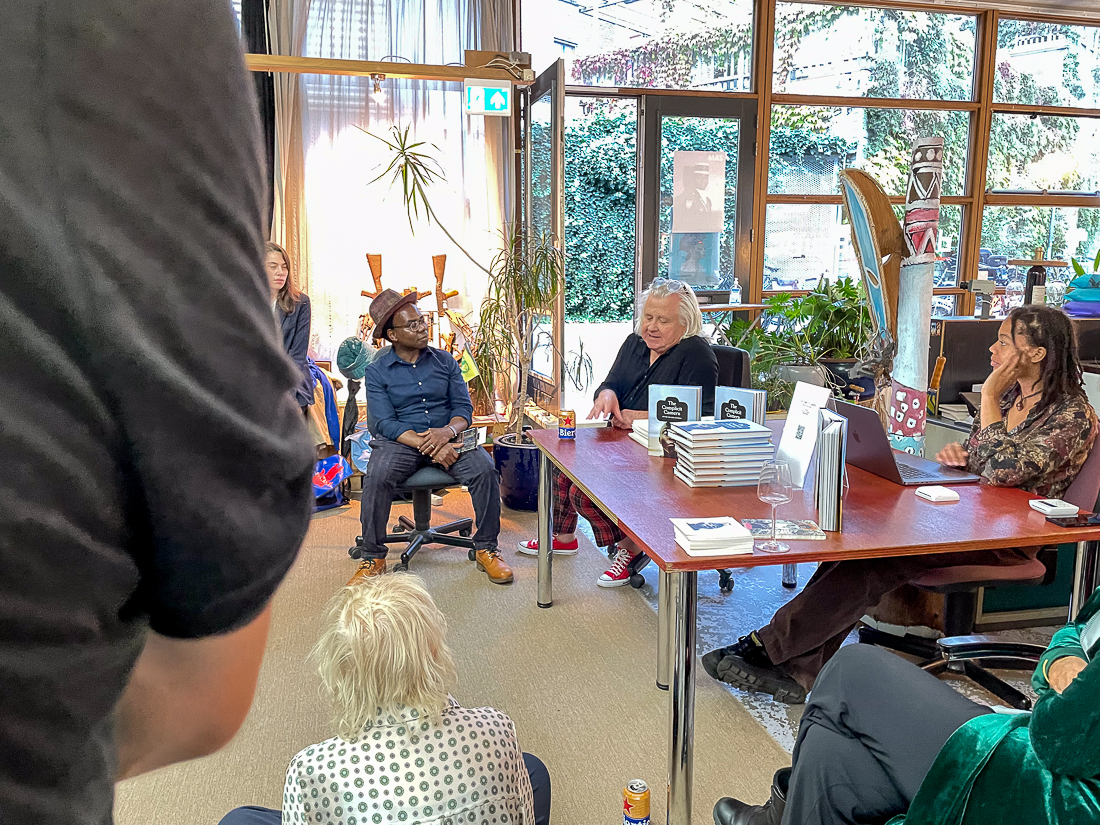
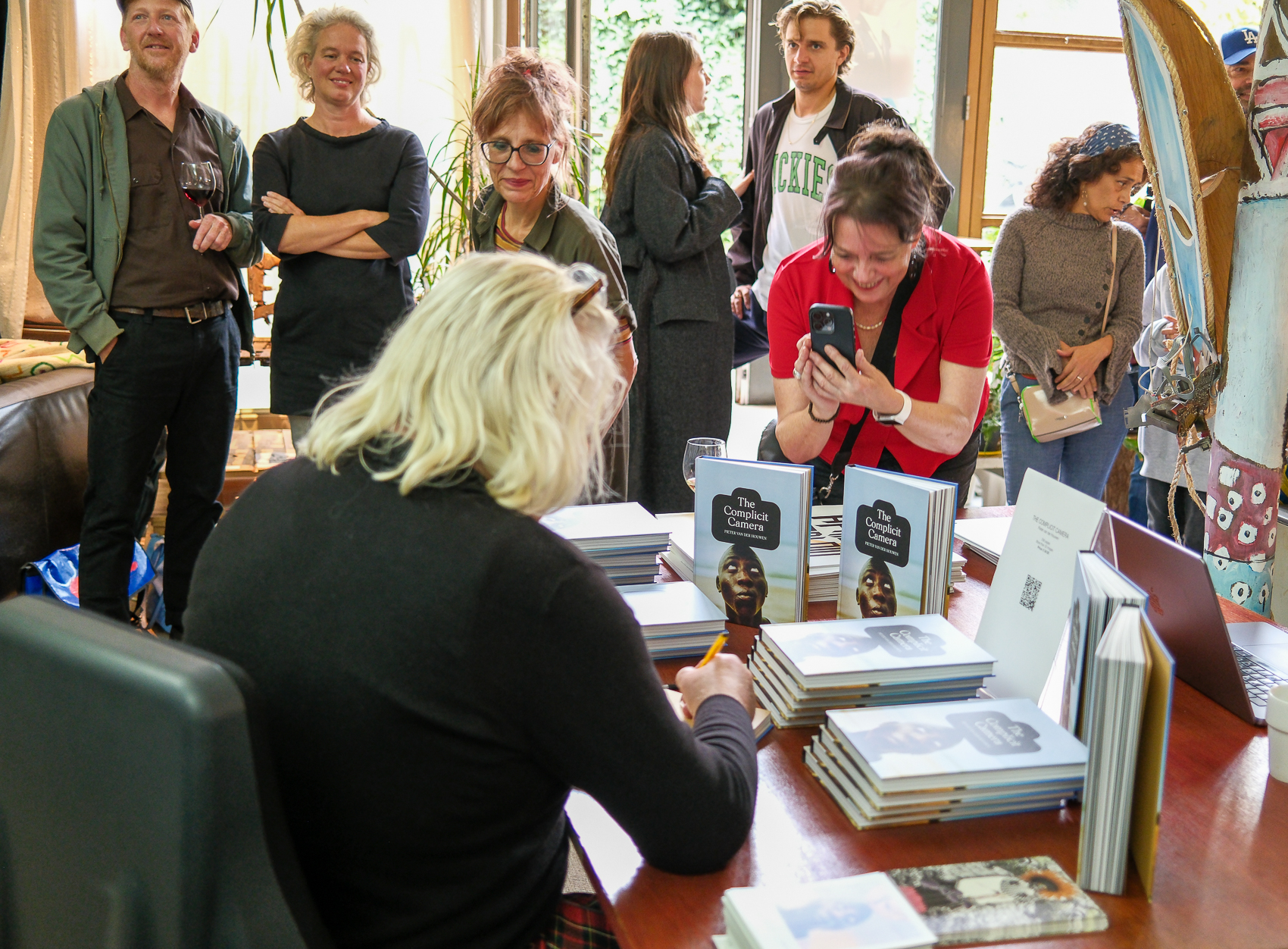
Reviews and Recommendations
The Complicit Camera is Pieter van der Houwen’s personal exploration of how his photographic work has engaged with a Western media industry that often portrays African subjects in stereotypical and reductive ways. This full-colour publication pairs selected photographs with reflections on how his work has contributed to dominant Western perceptions of Africa. Van der Houwen emphasizes that this is not an apology, but a critical examination of his own complicity in the shaping and circulation of these reductionistic Western imaginaries of black Africans.
In The Complicit Camera, Van der Houwen’s selected photographs—taken over 25 years of work in African contexts—are presented with context and discussed in terms of their creation. He reflects on his lack of sensitivity at the time toward the subjectivity of those he photographed, noting how he often captured people without recording personal details like names, professions, or locations.
To address this complicity in “othering” Africans as stereotyped, anonymous figures in Western media, Van der Houwen shares his evolving thoughts on the ethics of photographing African subjects, including his growing awareness of the unequal power dynamic between subject and photographer. This introspective work offers insight into what he, as a white photographer, has learned about his role in representing black African subjectivity that does not render the full complexity of African life, which is resilient, nuanced, and filled with agency.
Alongside the narratives and images offered to us by (young) African photographers and creatives, this self-reflection is a meaningful addition to the current conversation on the relationship between representation and identity construction, and the question of who benefits from image production and distribution.
Professor Dr. Margriet van der Waal
Endowed Chair of South African Literature, Culture and History at the University of Amsterdam on behalf of the Zuid-Afrikahuis
The Complicit Camera van Pieter van der Houwen raakte me op een dieper niveau dan ik had verwacht. Van der Houwen stelt scherpe vragen over de rol van fotografie en confronteert de lezer (zeker mezelf, fotograaf zijnde en ook actief geweest op het Afrikaanse continent) met het ongemakkelijke idee dat de camera vaak meer doet dan simpelweg vastleggen – het manipuleert, beïnvloedt en vormt onze werkelijkheid. Zijn beelden en woorden dwingen je om stil te staan bij wat je normaal vanzelfsprekend aanneemt, en dat vond ik oprecht verfrissend en uitdagend. Wat me vooral aansprak, is zijn eerlijkheid over zijn eigen betrokkenheid; hij erkent hoe hij zelf als fotograaf soms compliceert en controleert wat de kijker ziet. Het boek heeft een diepe impact bij mij achter gelaten en voor iedereen die nadenkt over de ethische kant van beelden en visuele kunst, is dit boek een aanrader – het is niet alleen leerzaam, maar zet je zeker ook aan tot diepe zelfreflectie en om je eigen werk in een ander daglicht te plaatsten. A really must read voor elke kritische fotograaf!
Sigrid Spinnox
Fotograaf
The Complicit Camera is an important book and a rare critical reflection on the position of a white western photographer working in several African nations. Through the analysis of a selection of his archive the author re-visits key aspects of his work and reflects on the representational choices he made, confronting his own complicity in picturing “Africa”. What emerges is a compelling reading and rereading of the responsibilities of the photographer and the importance of ethical practice.
Simon Popple
Senior Lecturer in Photography and Digital Culture, University of Leeds
Biography of the author: Pieter van der Houwen
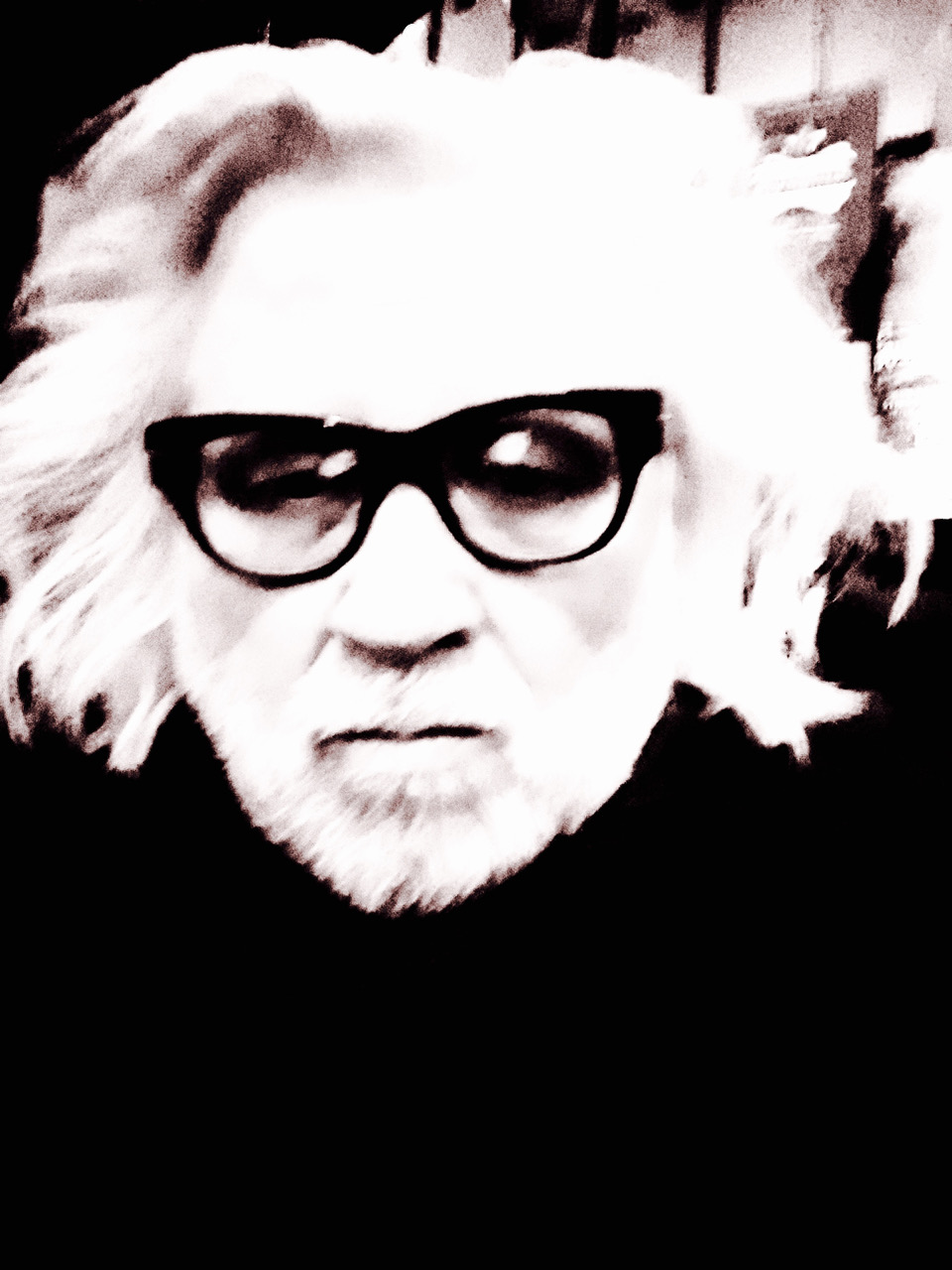
Pieter van der Houwen’s first encounter with the African continent was when he was recruited from art school by the Dutch government to illustrate a book on aid and development. After this initial introduction, he continued to work on the continent for almost three decades. He soon came to realise that the depiction of Africa in Western media outlets was a far cry from his own experiences. “It was as if Africa could only be understood through a negative interpretation.” The University of Glasgow allowed him to customise his Masters in political communication around his photographic work in Africa. His research in Glasgow pointed him towards the contemporary African diaspora, resulting in the publication African Tabloid and the documentary The China-Africa Connection (VPRO Television). The Complicit Camera seeks to breach the void between academia and the media industry.
More publications by Pieter van der Houwen
